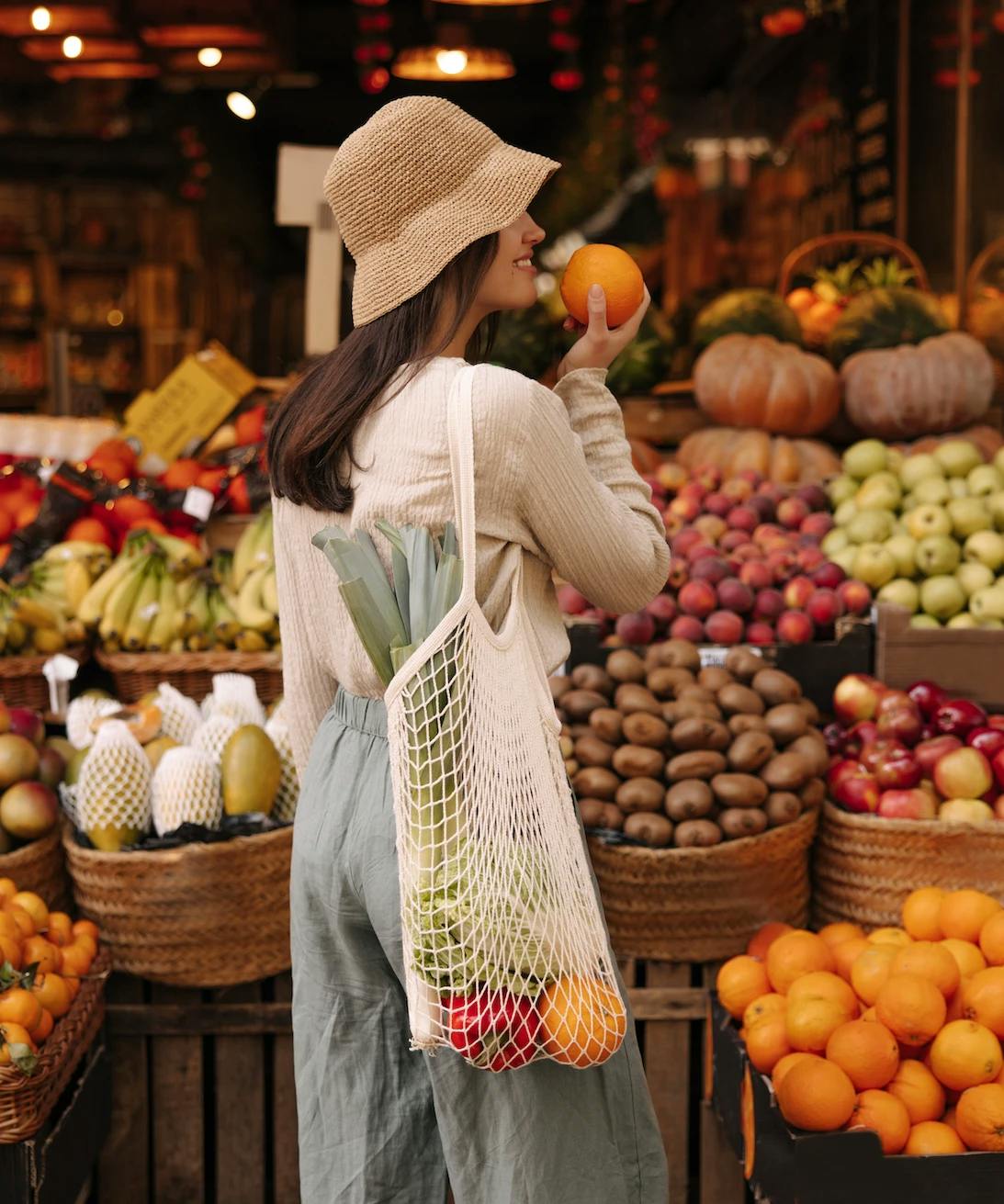4 Reasons Why Eating What's In Season Is Better For You
With summer approaching, it’s the perfect time to check out your local farmers market for fresh fruits and vegetables. Eating foods that are in season is not only delicious, but also comes with plenty of health benefits.

It can be difficult to know what’s in season as it varies by climate, and for some foods the timeline spans many months. Before grabbing your cutest farmers market tote and heading out the door, it’s best to research seasonal produce in your area. Knowing what fruits and vegetables are in season can help you in more ways than one. Let's get into it.
It’s Fresh and Tastes Better
Have you ever eaten a tomato in the dead of winter? If you have, then you know there's a clear difference between the taste and texture of that versus biting into a juicy, flavorful one in the summer. When produce (or any type of food) is fresh, it tastes better, and when food tastes good, we’re more likely to eat more of it. This can be a bad thing for junk food (which is why it’s nearly impossible only to eat one chocolate chip cookie) but a good thing for healthy food. According to the CDC, "only 1 in 10 adults get enough fruits and vegetables," and their report showed that men eat fewer fruits and veggies than women, which might be caused by less of a desire to “eat healthy.” That can change if we choose to eat fruits and veggies that are fresh and in season simply because that’s when they taste the best.
Additionally, since in-season produce is often local, it reduces your risk of eating produce with pesticides and herbicides that come from shipping food from overseas.
If you’re having trouble finding fresh fruits and vegetables, check out your local farmers market to try some freshly picked produce, or look to see if your grocery store carries locally grown produce. You (and your dinner guests) won’t be disappointed.

Nutritional Value
When foods aren’t in season, ripening agents like chemicals, gasses, or heat are used to make sure the foods ripen after being harvested so they can sell them – but this also diminishes their nutritional value. For example. studies show that broccoli has its highest vitamin C value during the fall, which is coincidentally when broccoli is in season. This indicates that eating food when it’s in season is also when food naturally possesses its optimal nutrition.

It Accommodates Your Body’s Seasonal Needs
Similar to foods being at their highest nutritional value when they’re in season, many in-season fruits and vegetables are designed to accommodate your body’s seasonal needs throughout the year. Two perfect examples are potatoes and watermelon. Potatoes are at their best in the fall and winter, allowing the vitamin C content to prevent diseases and other vitamins like potassium to nourish your nervous system during the colder months. The same goes for watermelon, which is at its peak during the summer months. The high water content in watermelon makes it the perfect fruit to help you hydrate and cool down on a hot summer day, proving that nature often knows what’s best for our bodies.

It’s Good for Your Wallet and the Environment
Eating what’s in season often means eating produce from local farms, which not only supports local farmers but is better for the environment due to the lack of fuel emissions. Fruits and vegetables that are in season are also less expensive than out-of-season produce, and who doesn’t love a good bargain in this economy?

Closing Thoughts
With summer approaching, it’s the perfect time to check out locally grown fruits and vegetables at a farmers market. So why not make a day out of it and buy some deliciously fresh produce?
Don’t miss anything! Sign up for our weekly newsletter and get curated content weekly!